ASARECA and ILRI Lead Regional Consultations to Co-Design Climate-Smart Legume Production Guidelines in Eastern Africa
BY BEN MOSES ILAKUT
KIGALI, KAMPALA, NAIROBI & ADIS ABABA—In the first half of 2025, ASARECA, in collaboration with ILRI and partner projects including AICCRA and LEG4DEV, convened a series of national consultative workshops in Kenya, Rwanda, Ethiopia, and Uganda to co-design Climate-Smart Legume Production Guidelines and Manuals. These workshops were part of a broader initiative to strengthen climate-resilient legume value chains across Eastern Africa, focusing on both grain and forage legumes.
The consultations were driven by a shared recognition that existing manuals and guidelines have not adequately addressed the increasing threats posed by climate change to legume productivity—an essential crop group for food and nutrition security, soil fertility, and income for smallholder farmers.
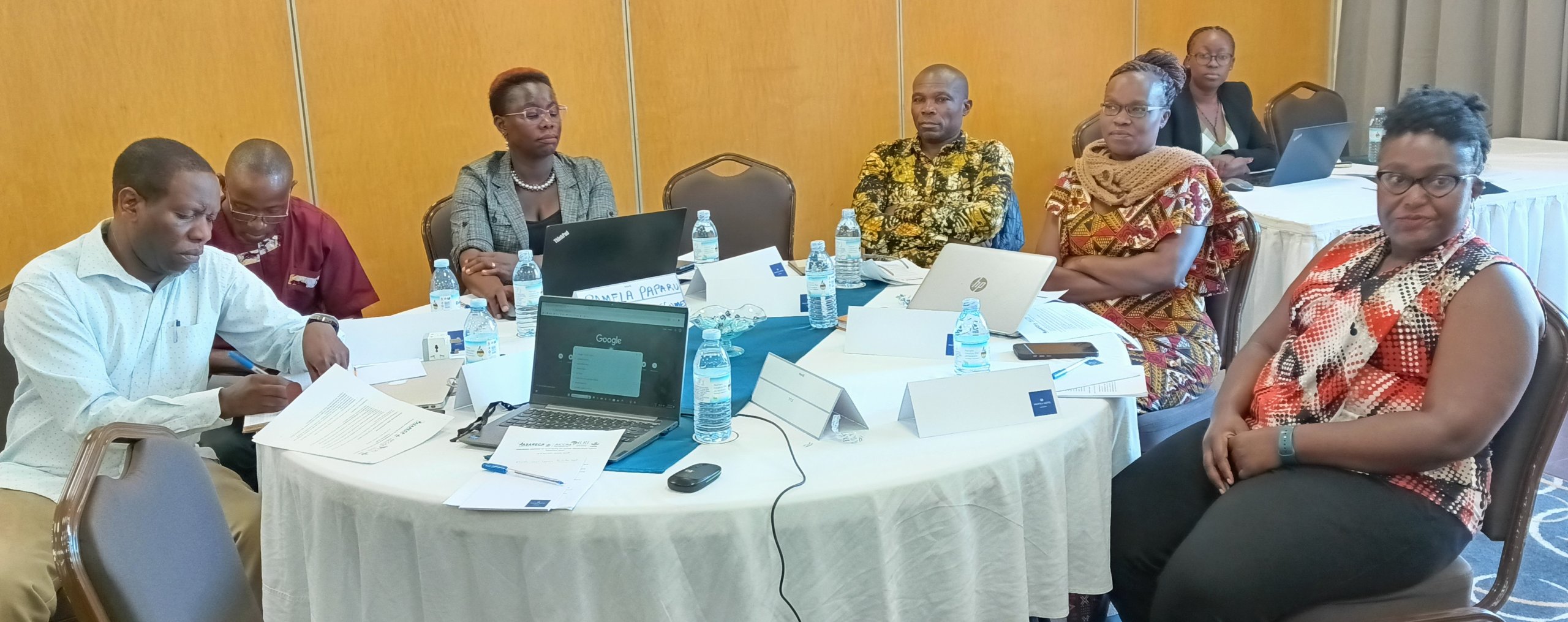
A Regional Collaboration to Address a Continental Challenge
Commenting on the initiative, ASARECA Interim Executive Director, Dr. Sylvester Dickson Baguma, described the consultations as “timely interventions to develop comprehensive, climate-smart production guides that target frontline agricultural extension agents.” He emphasized the vital role legumes such as beans, cowpeas, and soybeans play in improving nutrition, intercropping systems, soil health, and resilience of cereals to climatic stress. The manuals, co-designed with national agricultural research systems (NARS), are structured around seven core modules:
- Importance of legumes for food security and resilience
- Climate change impacts and early warning systems
- Climate-smart legume production technologies and practices
- Climate-resilient legume seeds
- Harvesting and post-harvest management
- Mechanization for smallholder systems
- Enabling environments (policy, markets, insurance, gender inclusion).
Country Highlights and Priorities
Kenya: Workshop Held March 6–8, Nairobi
The Kenya consultation brought together experts from KALRO, agricultural universities, government ministries, and extension services. During the opening, Dr. John Recha of ILRI noted that Kenya’s legume sector faces compounding climate threats, including prolonged droughts, erratic rainfall, and increased pest and disease outbreaks.
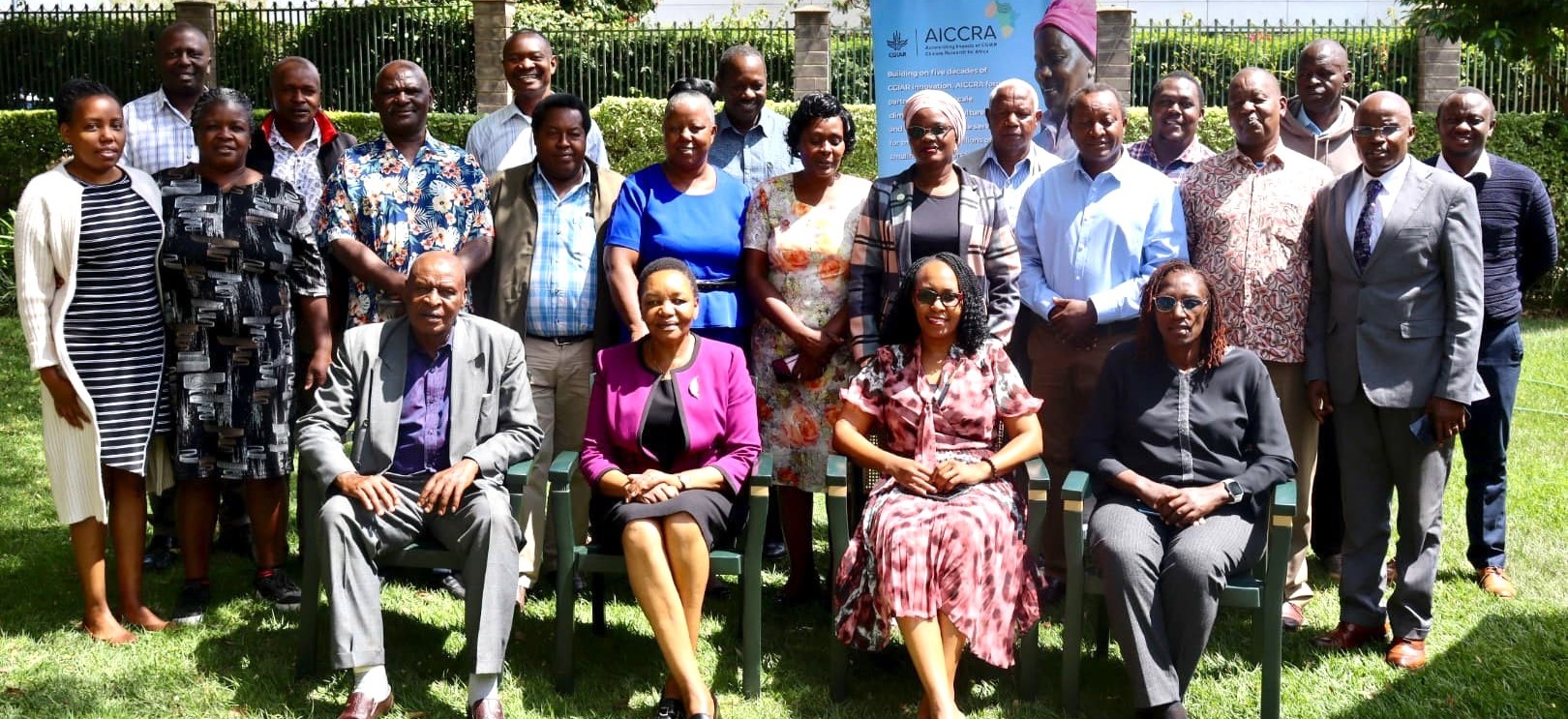
Participants prioritized common beans, cowpea, greengram, groundnuts, lablab, pigeon pea, garden peas, and chickpeas as Kenya’s key climate-smart legumes. The team reviewed agroecological zones and existing legume programs, and identified key gaps in climate adaptation, input access, and seed systems.
Experts emphasized Kenya’s need to align legume production with localized climate information services and invest in robust seed distribution systems and post-harvest technologies.
Rwanda: Workshop Held March 10–12 in Kigali
In Rwanda, the consultative workshop convened scientists from Rwanda Agriculture and Animal Resources Development Board (RAB), universities, meteorological departments, and NGOs. Dr. Florence Uwamahoro, RAB Deputy Director General, commended ASARECA and CGIAR for supporting national efforts to develop tailored guides in response to local climate challenges.
Participants selected dry beans (climbing and bush), snap beans, green peas, soybeans, groundnuts, and forage legumes such as Mucuna and Desmodium as national priorities. The workshop also highlighted the role of legumes in Rwanda’s terraced farming systems and in improving women’s roles in agriculture. Experts called for enhanced investments in research-extension linkages, climate-smart varietal development, and inclusive farmer training to scale adoption.
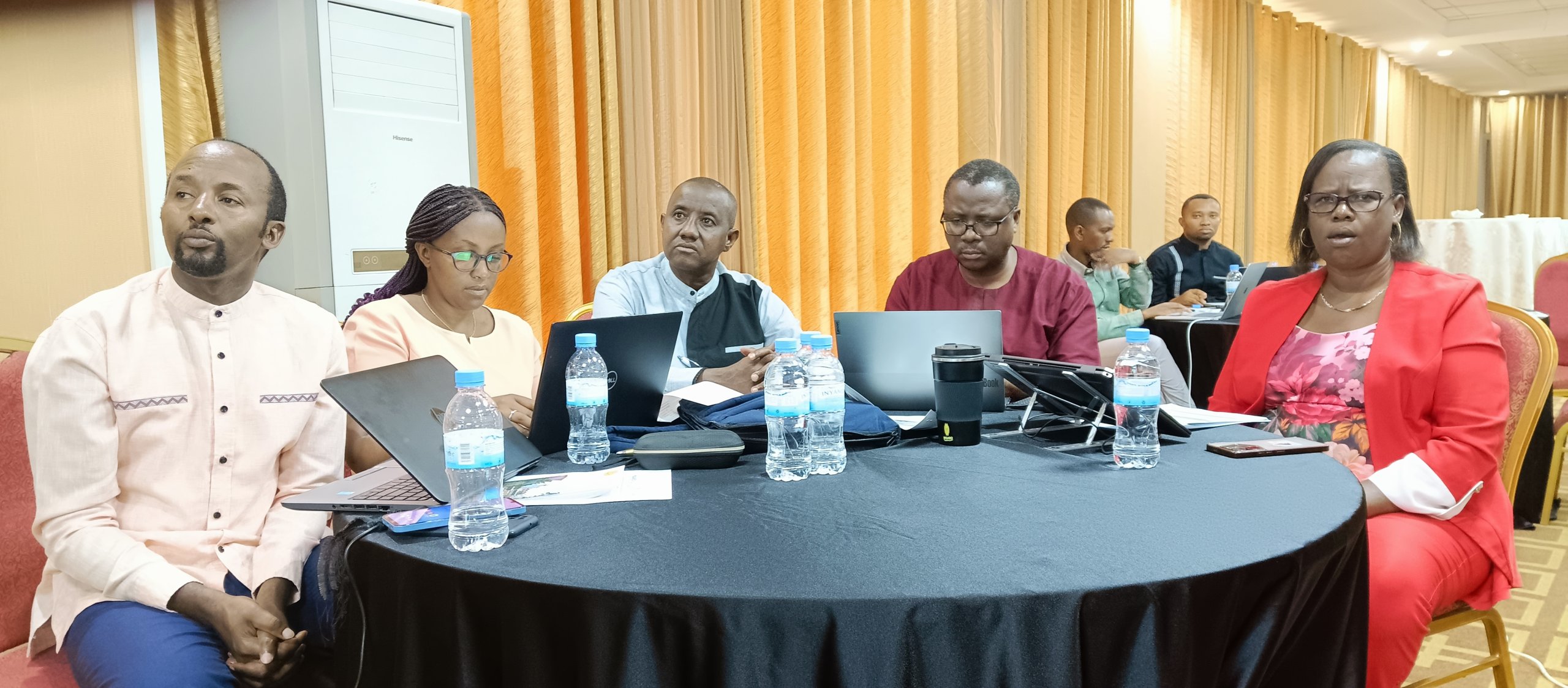
Ethiopia: Workshop Held March 17–19 at ILRI Addis Ababa
Hosted at ILRI’s Addis Ababa campus, Ethiopia’s workshop brought together scientists from EIAR, regional research centers, and the LEG4DEV project team led by Prof. Charles Spillane from the University of Galway. Prof. Spillane emphasized that legumes remain underutilized in delivering transformational outcomes despite their potential to boost productivity, health, and sustainability. Dr. Namukolo Covic, CGIAR’s Country Convenor for Ethiopia, reinforced the importance of aligning legume development with climate-smart agriculture and nutrition priorities.
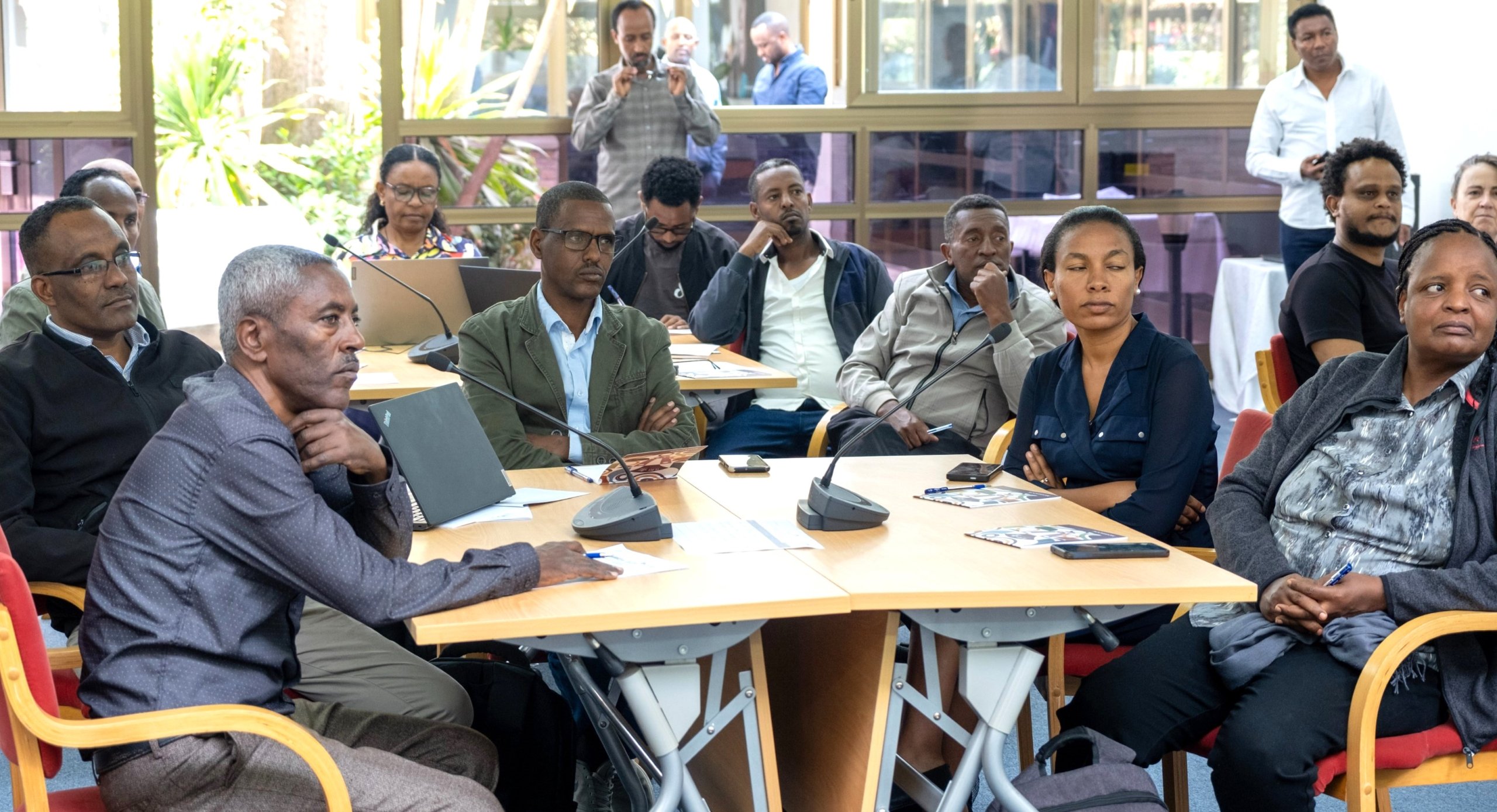
Ethiopia prioritized faba beans, field peas, chickpeas, lentils, common beans, mung beans, cowpeas, and pigeon peas. The workshop addressed issues such as climate-resilient seed systems, early warning systems, and the integration of mechanization for harvesting and processing in smallholder settings.
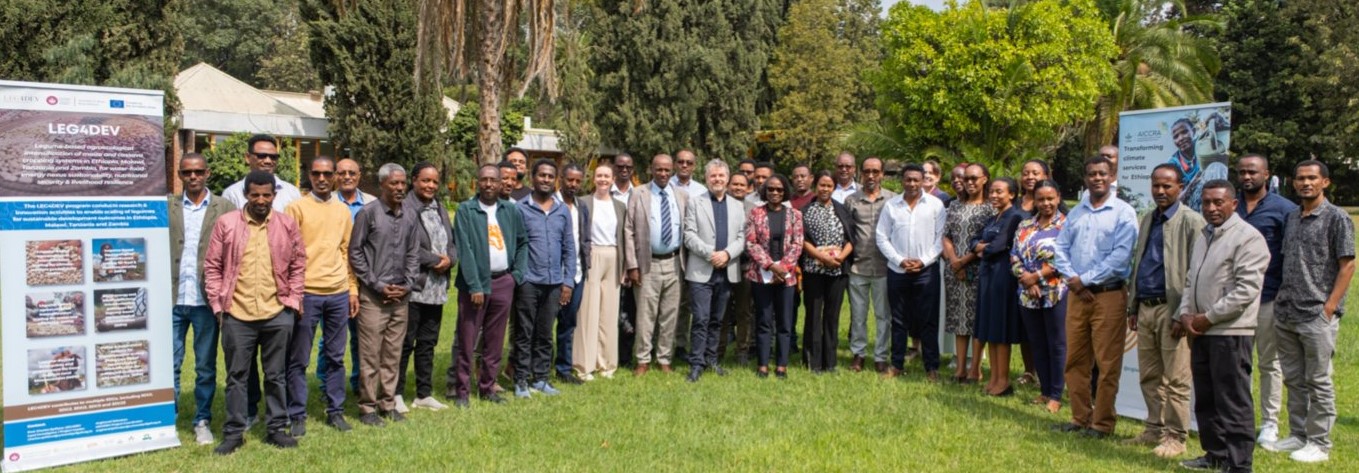
Uganda: Workshop Held April 14–16, Kampala
Uganda’s workshop, led by NARO and supported by UFAAS and Makerere University, focused on the changing climate dynamics in Uganda’s agroecological zones. Experts acknowledged that previously defined zones are becoming less predictable, requiring updated approaches to legume farming.
Uganda identified groundnuts, common beans, soybeans, pigeon peas, cowpeas, greengram, lablab, and Calliandra (as fodder legume) as priority crops. Participants discussed the role of legumes in improving soil health, providing quality livestock feed, and enhancing income and food security in vulnerable communities. Key gaps identified included limited access to improved climate-resilient varieties, weak post-harvest handling systems, and lack of structured markets. The need for climate-smart extension materials and training of frontline agents was also emphasized.
Participants in the Kampala workshop considered both fodder and crop legumes in arriving at their priorities.
Shared Climate Challenges and Joint Solutions
All four countries reported facing increasingly unpredictable weather patterns, rising temperatures, frequent droughts, and heightened pest and disease pressure, which are severely impacting rain-fed legume farming systems. Soil degradation, water stress, and shifting planting seasons have further complicated production planning. These climate-related risks underscore the need for integrated legume development strategies that combine agronomy, climate science, and market systems with policy support.
Next Steps
Participants agreed that the co-design process for the manuals will continue through May 2025, after which the drafts will undergo peer review in June, followed by validation and publication in each country.
This regional effort is expected to provide actionable, climate-smart legume production tools to extension agents and farmers, contributing to improved food and nutrition security, climate resilience, and rural livelihoods across Eastern Africa.

